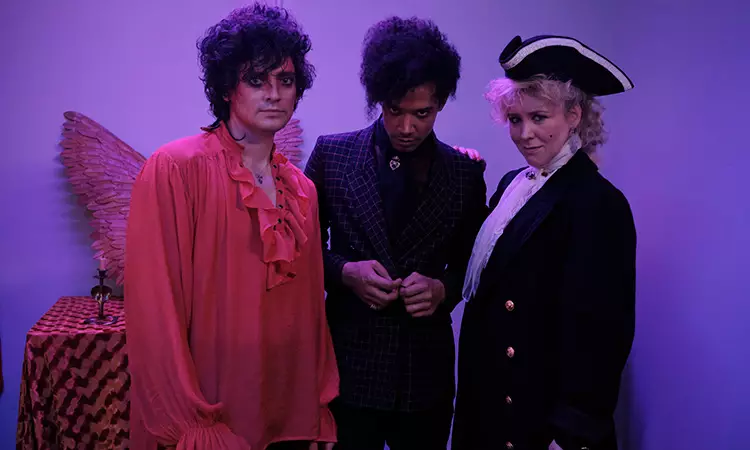Alice Lowe’s latest creation, *Timestalker*, promises a remarkable blend of comedy, horror, romance, and science fiction, encapsulating the essence of its protagonist, Agnes, who traverses different epochs in pursuit of love. Lowe, not only the director but also the writer and lead actress, expresses her conviction that contemporary audiences will embrace this genre-bending narrative. Her motivation stems from the recognition that viewers are well-versed in such complex storytelling, drawing parallels with established works like *Doctor Who* and *Back To The Future*. Lowe emphasizes the importance of not underestimating the audience’s capacity for comprehension, suggesting that a mash-up of genres doesn’t confuse but instead enriches the viewing experience.
In discussions with her co-star Nick Frost, who also contributes to the film’s dynamic through his character, the dialogue surrounding genre becomes even more compelling. Frost emphasizes the unique opportunity that genre-blending offers, allowing characters to embody multifaceted human traits—fear, desire, vulnerability—all within the fantastical setting of time travel. The ability to showcase these layered emotions makes characters relatable, fostering a deeper connection with the audience. This, coupled with a varied narrative structure, invites viewers into a world where they can see themselves reflected in the characters’ struggles and triumphs.
Despite the ambitious nature of *Timestalker*, the path to realization was paved with challenges, taking Lowe a painstaking seven years to bring her vision to life. This lengthy process included navigating the often-tedious world of film financing, where convincing potential investors of the project’s viability was crucial. Lowe’s previous film, *Prevenge*, was well-received, yet transitioning into a new and more complex project required a broader vision and a more persuasive narrative to gain support.
The film’s extensive time travel narrative spans various historical contexts, from Georgian England to 1980s New York, with each time period carefully crafted to reflect not only the aesthetics of the era but also the evolving notions of romance. This attention to detail serves to highlight crucial conversations about societal norms and gender roles throughout history, providing an engaging backdrop against which Agnes’ tragic love stories unfold. Aneurin Barnard, who plays Agnes’s recurring love interest, articulates the necessity of maintaining the essence of his character across multiple timelines, ensuring continuity even as the historical context shifts dramatically.
Lowe delves into the peculiarities of romantic narratives and how societal expectations have shaped them over centuries. Each historical era featured in *Timestalker* not only places emphasis on romantic notions but also critiques how these ideals have been sold and commodified. She articulates a concern that such romanticized narratives may contribute to unrealistic expectations, resulting in a societal melancholy that pervades contemporary life.
The conversation turns introspective when discussing the film’s darker comedy—Agnes’ encounters invariably lead to her untimely demise, often in a ludicrously comedic fashion. Lowe humorously recalls moments in the film, particularly one involving a carriage, where Agnes meets a particularly grisly fate—she describes the scene with joyful vividness, illustrating how humor can be an effective lens to explore darker themes. This juxtaposition of humor and tragedy enhances the storytelling, creating a tone that is both engaging and thought-provoking.
The collaborative atmosphere on set was crucial to the film’s success. Lowe appreciates that the cast and crew embraced the eccentricities of the project, often without extensive pre-shoot discussions. This spontaneity fostered creativity, allowing actors to explore their characters in real-time, resulting in authentic performances that resonate with audiences. Frost’s involvement adds a layer of comedic relief, emphasizing that even amidst chaos—be it time travel or social scrutiny—the beautiful messiness of life can be the most relatable aspect.
The film culminates in a narrative where past romantic ideals collide with modern sensibilities, reflecting not only on the fluidity of love across the ages but the immutable nature of human experience. As Lowe succinctly puts it, *Timestalker* is not merely about the act of dying; it’s about celebrating life, love, and the rich tapestry of emotions that accompany the human journey.
In essence, *Timestalker* examines the complex interweaving of various genres and emotional scopes, underpinned by an astute critique of romance throughout history. Lowe emerges not just as a filmmaker but as a storyteller keenly aware of the human condition, inviting audiences to ponder the multifaceted nature of love, loss, and time.

